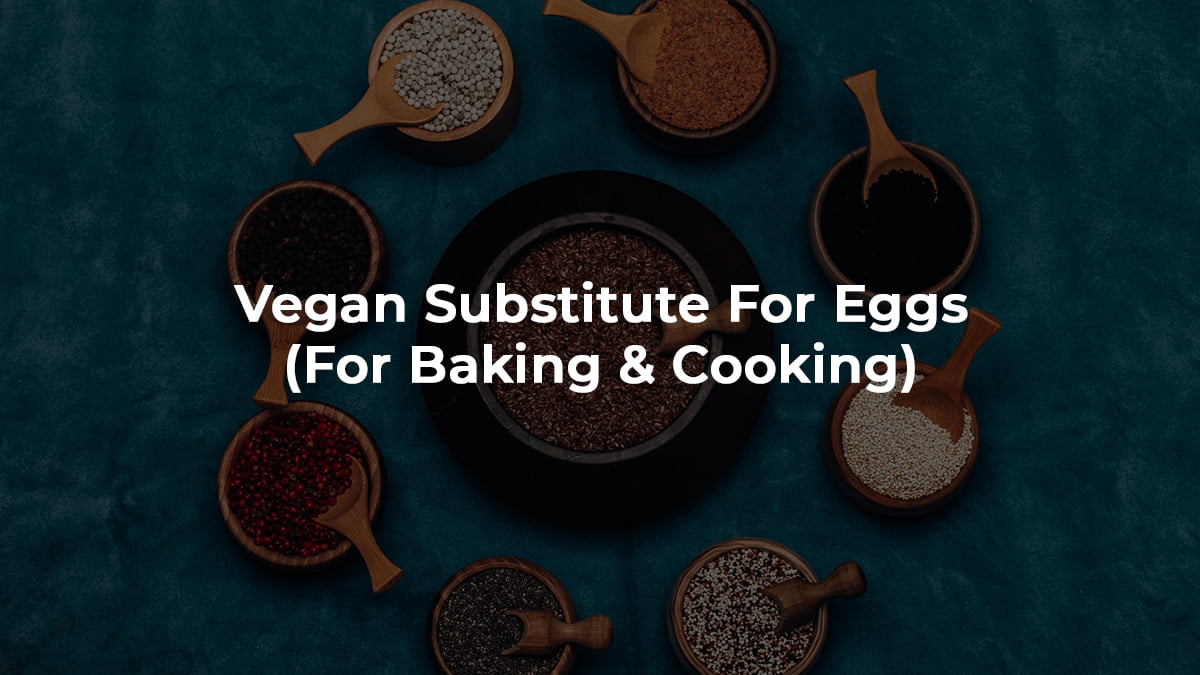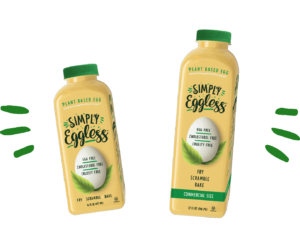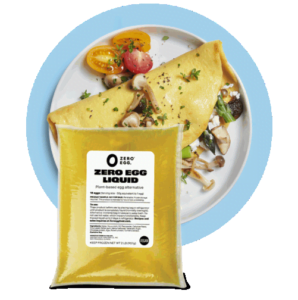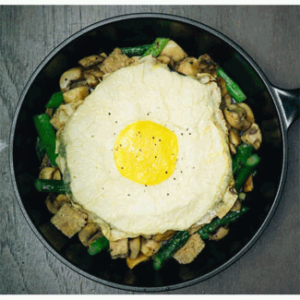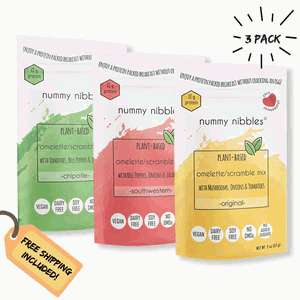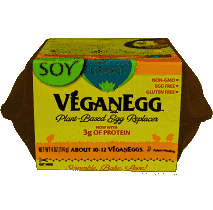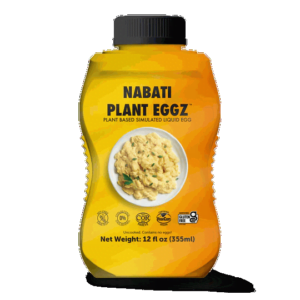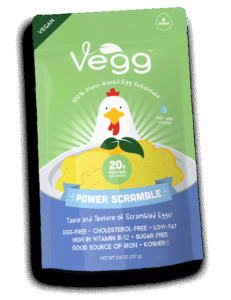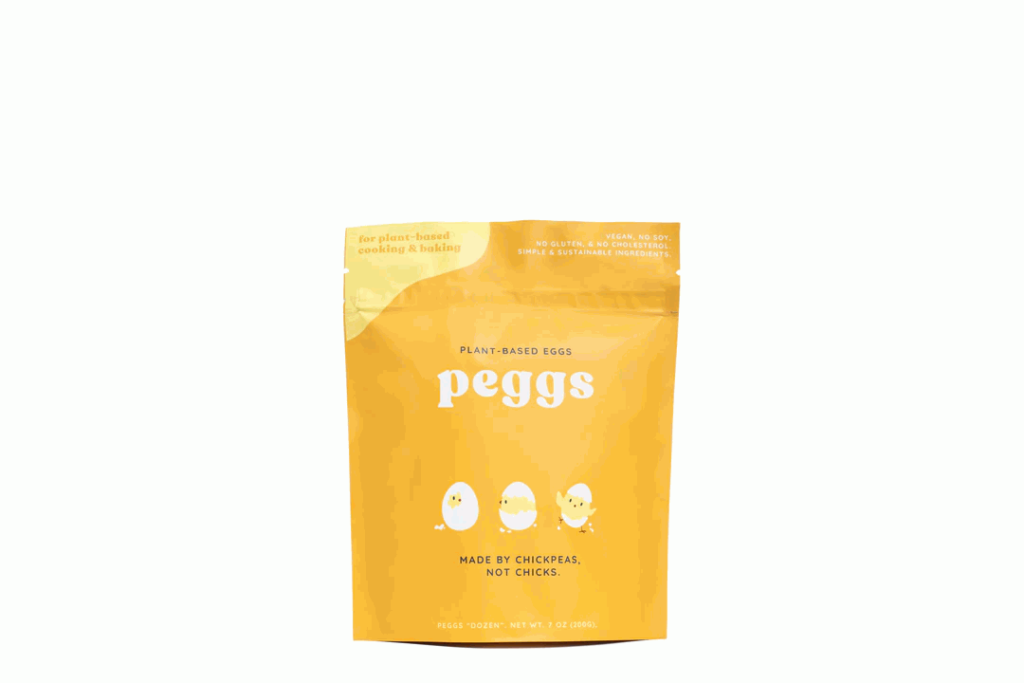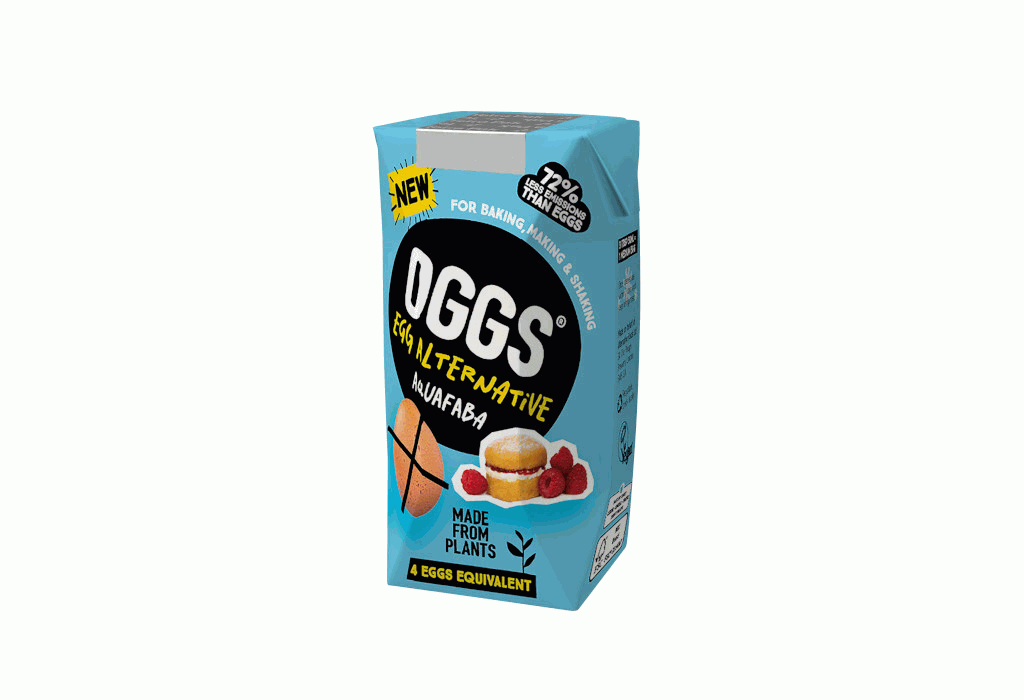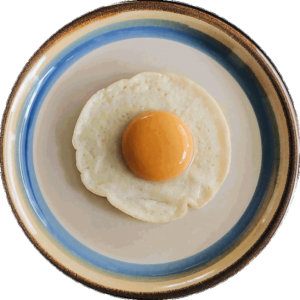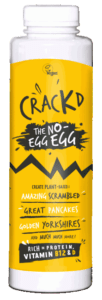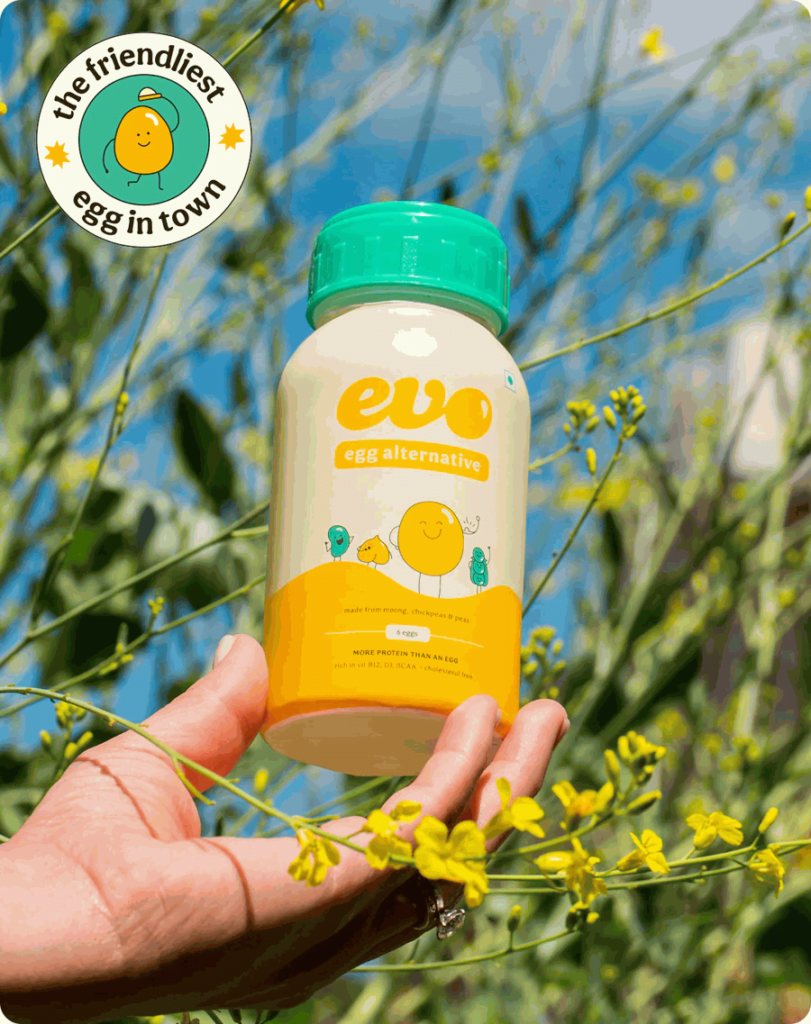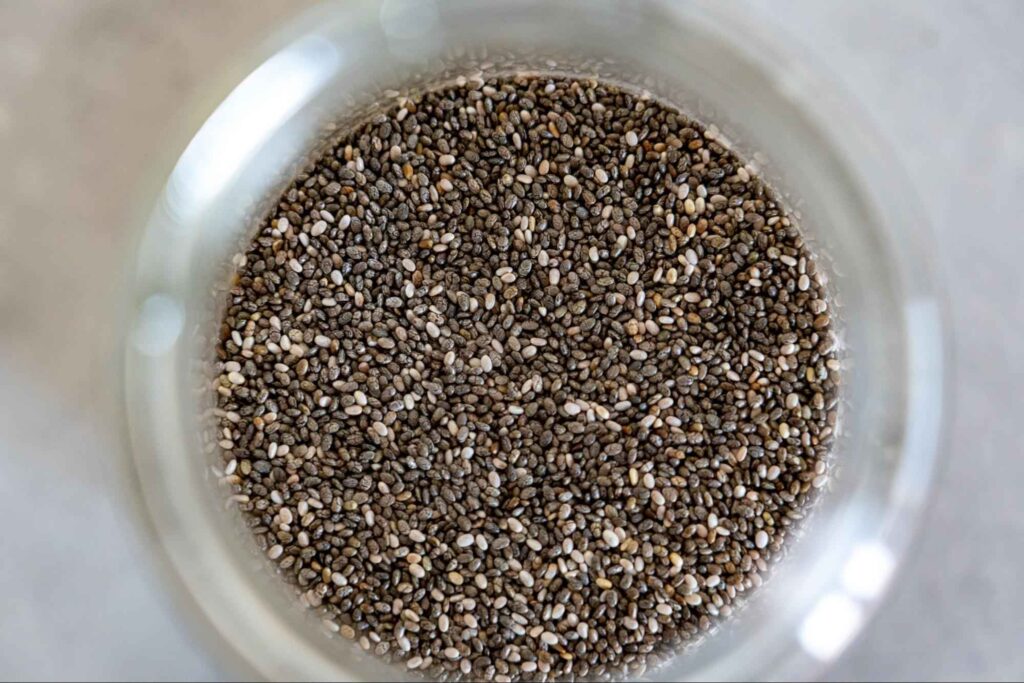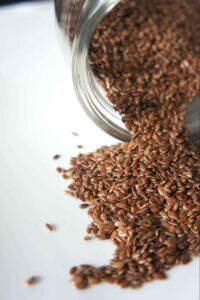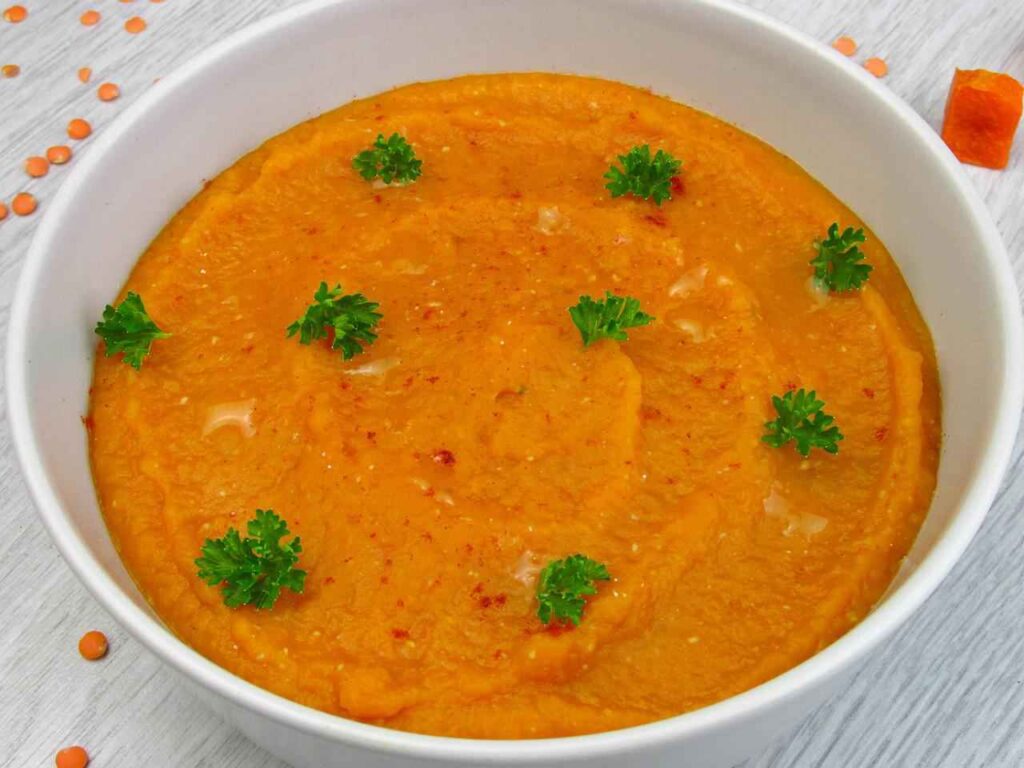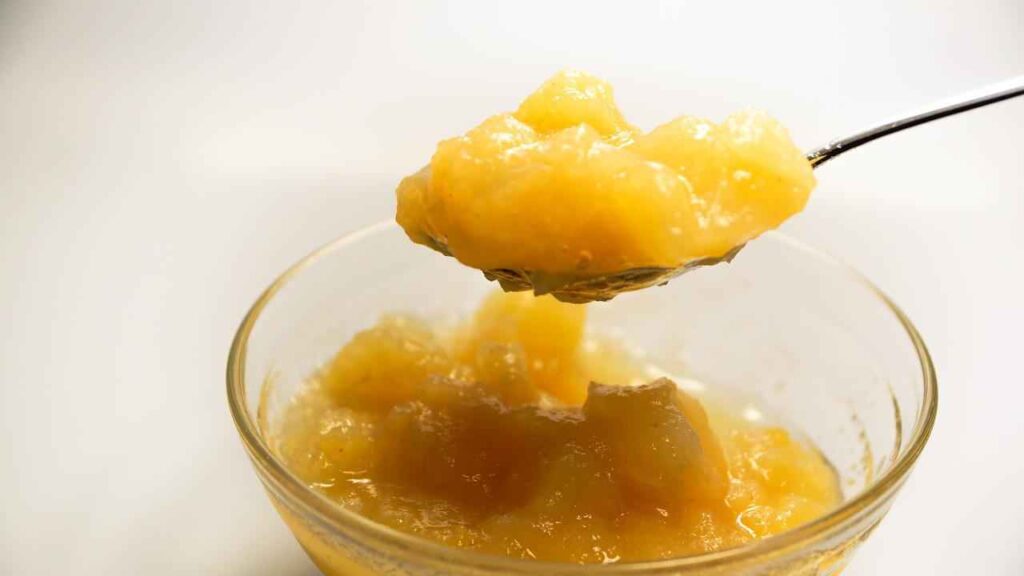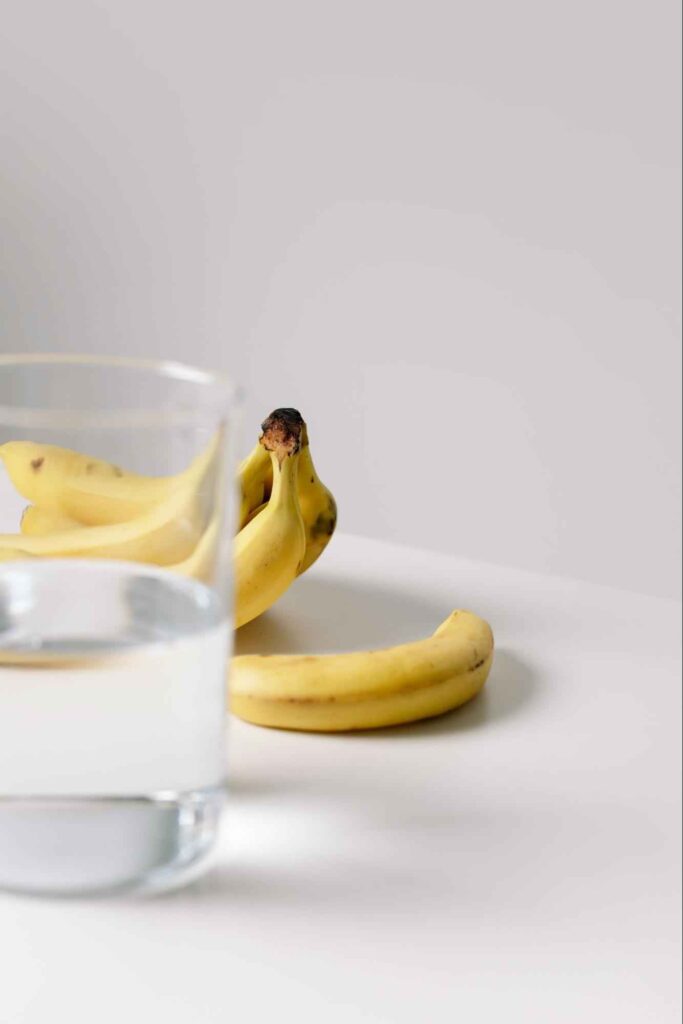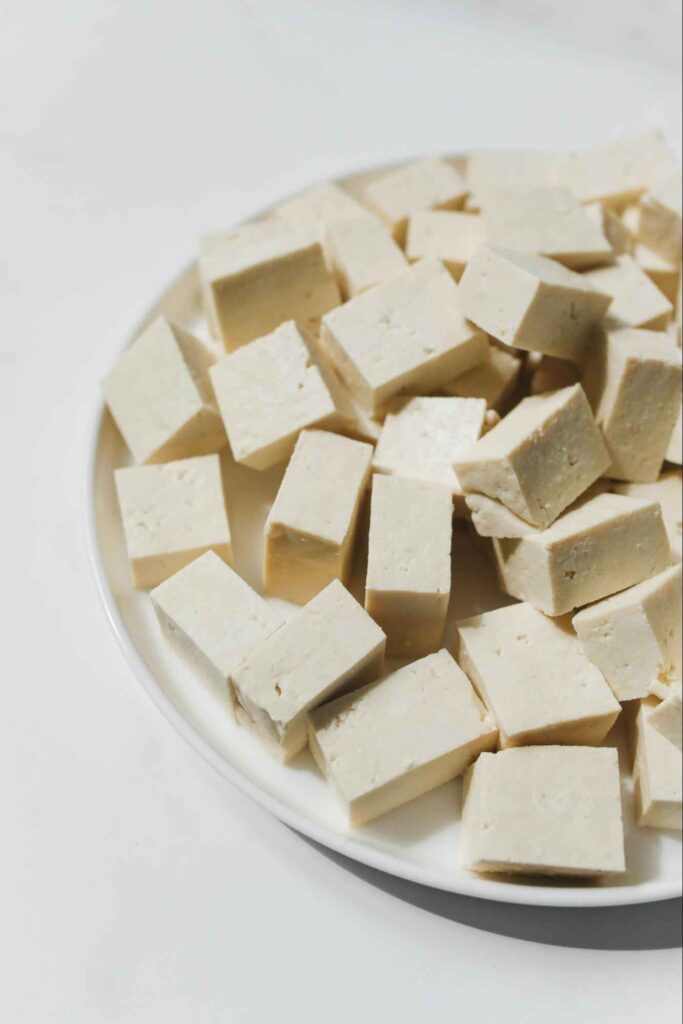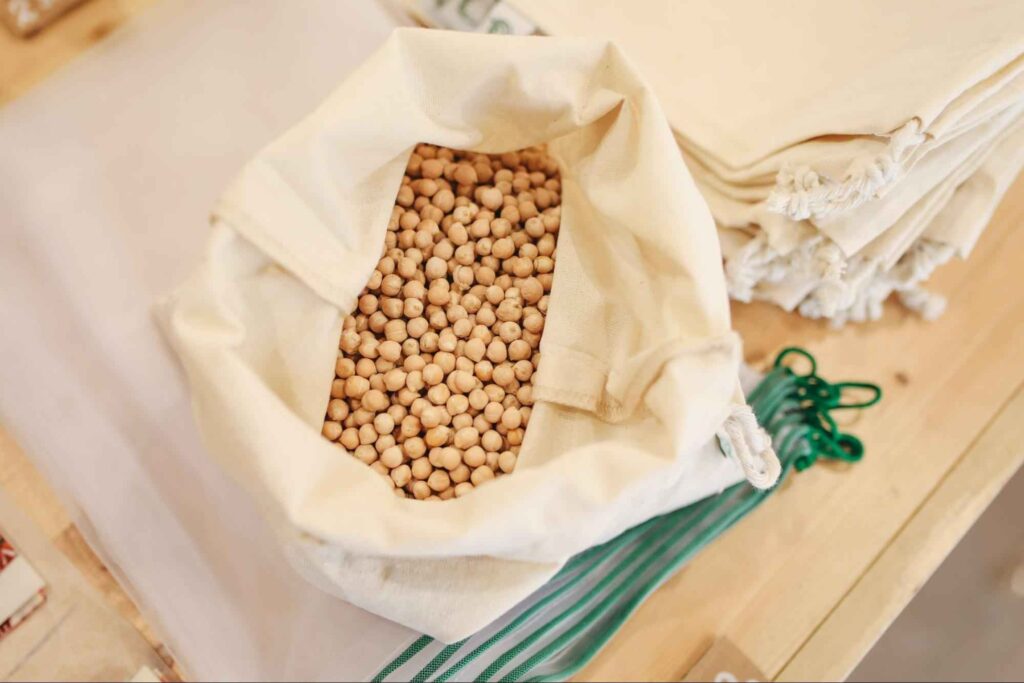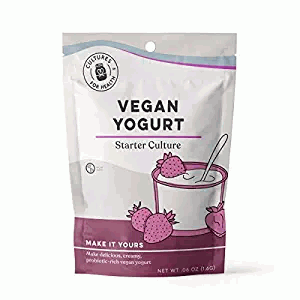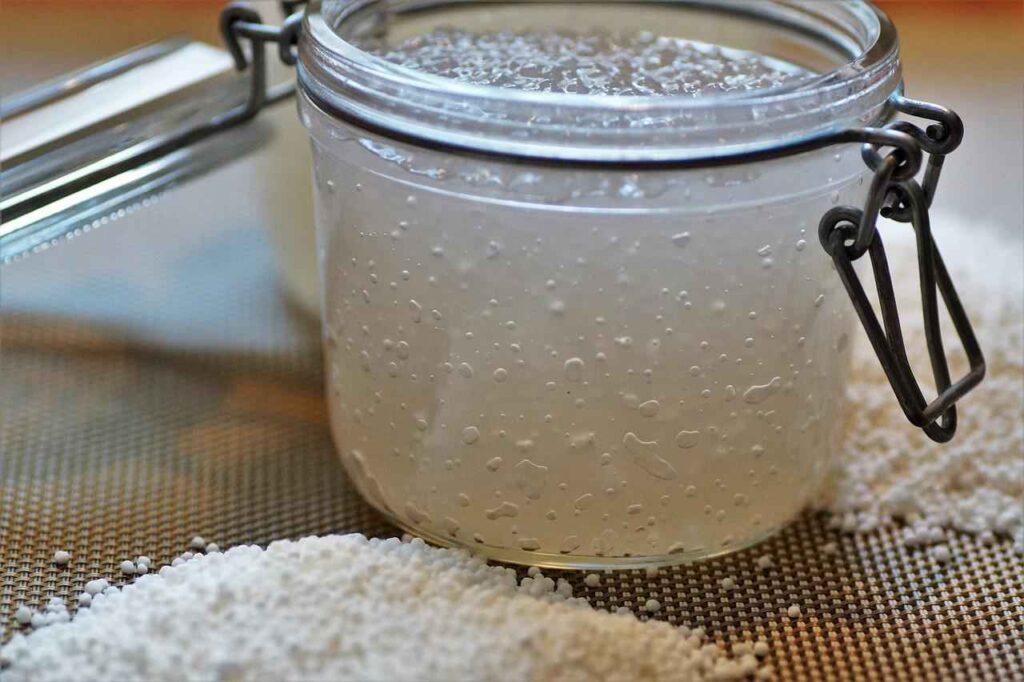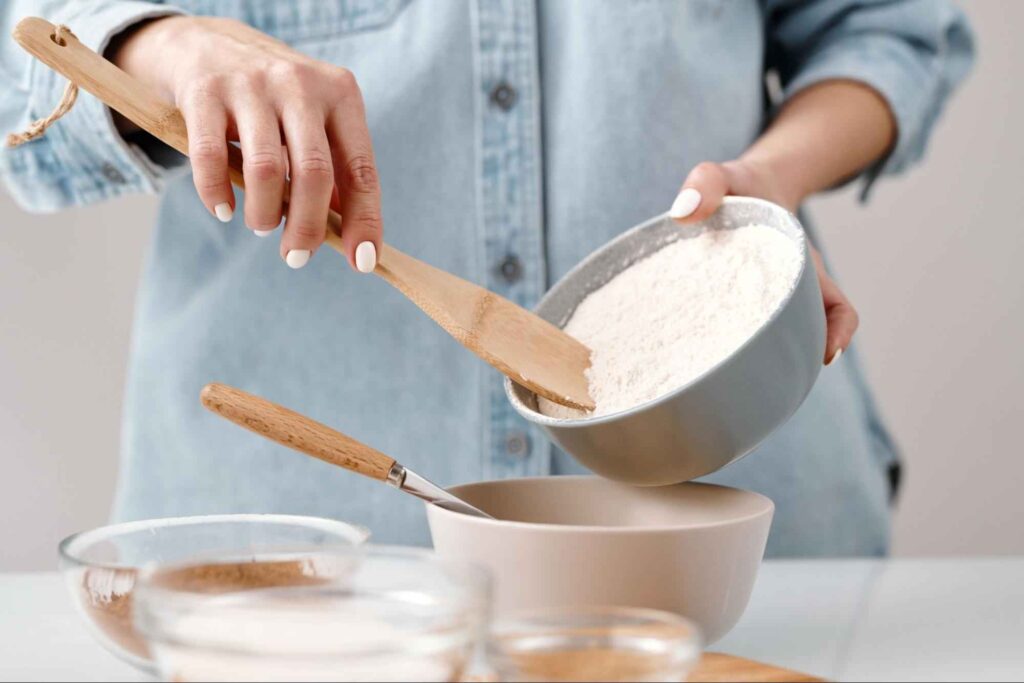Introduction
“This is Just The Beginning of Vegan!”
If you’re looking for a vegan substitute for eggs then you must read this article. Vegan eggs come in various forms and are carefully made to replicate the unbeatable binding qualities and savory standalone taste of animal-laid versions.
If you are an amateur in vegan baking, you may think, what can I use for baking instead of eggs? Luckily, there are lots of vegan egg substitute options available for baking use.
This post will discuss some of our favorite egg replacements and the vegan eggs brands available trying to step up for a healthier version of you!
Best 13 Vegan Substitute For Eggs (Readymade)
Eggs are a vital ingredient in cooking and baking because of their binding and distinctive leavening properties.
However, there are plenty of vegan egg substitutes on the market. This section details the most popular brands of vegan egg substitutes available right now.
Here are some store-bought vegan egg substitutes that will make your eggless baking and cooking easier:
1 – Just Egg (Liquid)
Created from mung bean protein, Just Egg can be used as you would use conventional eggs across various applications. We’ve tried it in scrambles, omelets, puddings, quiches, and more, and it holds up well.
This is our favorite and the most faithful to the original of all the egg alternatives. Just Egg is available for sale across the US and in various Asian markets and has recently been renowned with the EU safety approval, meaning Europe-wide launches are imminent.
Nutrition per 3 tbsp
- 70 calories
- 0mg of cholesterol
- 5g fat
- 6g protein
2 – Simply Eggless
Simply Eggless bolsters its offering with probiotics and a healthy protein dose, bringing lupin beans into the mix, but the clever final touch is the release of two individual products.
Simply Brand Foods has determined what few others have examined: that one vegan egg seems incapable of working in every application.
Nutrition per 114 g
- 50 calories
- 0mg of cholesterol
- 3.5g fat
- 3g protein
3 – Zero Egg
Zero Egg was launched with animal-free protein with sustainability as a side serving to taste good, leave a light footprint, and ultimately work well in your life. There’s also potato with some general ingredients (pea, soy, and chickpea protein), adding unique density.
The most varied products are a ready-to-use liquid, two powders (the ‘classic’ for scrambling and one for baking), and a sandwich patty. Zero Egg offers a similar flavor profile to conventional eggs, making it a great allrounder.
Nutrition per 5.3 g Egg Basics powder
- 15 calories
- 0mg of cholesterol
- 0g fat
- 2g protein
4 – BeLeaf
This one is so fascinating! The BeLeaf Fried Egg feels like a homemade pan-fried egg, and it is loaded with the texture and taste of traditionally created eggs.
The company paired this product with the breakfast potatoes and toast, but this egg is so unique it’s also the perfect topping for messy vegan burgers.
Nutrition per single serving
- 6g fat
- 87 calories
- 6g protein
- 2g carbohydrates
5 – Nummy Nibbles
Created from dehydrated vegetables and chickpea flour, these no-egg mixes are ideal for plant-based scrambles and omelets. Furthermore, Nummy Nibbles mixes are available in three eggceptional flavors—Southwest, Original, and Chipotle.
Each variety includes black salt to get the versatile eggy taste. You can pair this egg sub with a toasted bagel loaded with smashed avo, breakfast sausage, and plant-based cheese.
Nutrition per 57g
- 12g protein
- 0 cholesterol
- 12g fiber
6 – Follow Your Heart
From savory omelets and scrambled to cookies and sweet cakes, the Follow Your Heart VeganEgg is a perfect go-to choice.
This vegan egg substitute is loaded with protein and gives you an eggy taste without any cruelty, mixed with the organic soy milk powder, black salt, and nutritional yeast. So, breakfast bagels, here we come!
Nutrition per serving
- 0g saturated fat
- 5g carbs
- 0mg cholesterol
- 3g protein
7 – Nabati
Nabati’s Plant Eggz is a breakfast gamechanger. It is a liquid egg substitute and perfect for every craving for scrambled eggs—paired with fruit salad and plant-based bacon. In addition, this vegan egg substitute works well in vegan-friendly baked goods like dessert bread and cakes.
Nutrition per serving
- 2g fiber
- 100 calories
- 6g protein
- 9mg cholesterol
8 – Vegg
Vegg has the hookup on various other plant-based egg alternatives and the vegan egg. So you can whip up a tasty breakfast hash or opt for a powder scramble or try out the Egg Yolk substitute for an unforgettable vegan eggs experience. The brand also provides a vegan-friendly French toast mix using vegan egg technology.
Nutrition per serving in 2.6g
- 0g fat
- 1g protein
- 0mg cholesterol
- 130mg sodium
- 1g carbohydrates
9 – Peggs
Chickpeas, not chicks, you all! Introducing Peggs, a woman-owned, plant-based egg company featuring a powdered egg substitute derived from chickpeas, flaxseed, and black salt.
This versatile product packs all of the eggy flavors without any harm. We’re picturing plant-based frittatas and mini morning quiches loaded with veggies!
Nutrition per servings from 33g
- 1.5g fat
- 0g saturated fat
- 0mg cholesterol
- 4g dietary fiber
- 640mg sodium
- 23g carbs
- 4g protein
10 – Oggs
After constant two years of development with teams sponsored by top universities, Oggs has recently introduced the first patented liquid vegan egg alternative globally. The product contains just aquafaba – aka chickpea water known as Oggs Aquafaba.
It can whisk and whip just like real eggs; it can be used in baking recipes, especially those containing egg whites.
Since its inception in July, this year across Waitrose supermarkets in the U.KThe startup says it has saved 28,676 eggs.
Nutrition per 100g
- 11g fat
- 132 calories
- 5g protein
- 6g carbs
11 – OnlyEg By Float Foods
Float Foods’s OnlyEg is Asia’s first commercial plant-based whole egg replacement. It is made from legumes-based proteins and is said to be a vegan egg substitute for both the egg white and yolk.
Moreover, OnlyEg can be assembled and prepared within minutes to recreate classic egg dishes, especially for recipes in Asian cuisines, such as an over-easy, sunny-side-up, or soft-boiled egg, while being vegan–friendly, cruelty-free, and more sustainable than its counterpart of conventional animal-based products.
12 – Crackd The No-Egg Egg
Crackd is owned by startup Plant Heads and recalls itself as the country’s first liquid vegan substitute for eggs. It has also secured nationwide distribution across supermarket chain M&S as well as online specialty retailers.
The liquid egg is used via European Food Safety Authority-approved plant ingredients, consisting of nutritional yeast, black salt, and cold-pressed pea protein. It is notably rich in Vitamin B12 and D and allergen-free.
Nutrition per serving
- 0.5g fat
- 92mg sodium
- 0.1g saturated fat
- 9g dietary fiber
- 0g sugars
- 2g protein
13 – Evo Foods
Launched in 2019, Evo Foods has previously told Green Queen that it uses biotechnology to harness plant proteins derived from lentils. It is to create a 100% vegan liquid egg product that is more sustainable than conventional eggs and contains no cholesterol; no antibiotics are animal cruelty-free.
This year, the Mumbai-based startup focuses on selling its first liquid vegan egg product via foodservice partnerships with restaurants and its online websites in Delhi, Mumbai, and Bangalore.
Furthermore, the company has ambitions to roll out in the U.S. by April next year and is still ramping up product development for a shelf-stable vegan egg product.
Nutrition per 100ml
- 11g protein
- 0g cholesterol
The Best Vegan Egg Substitute For Cooking & Baking
Due to their binding and foaming properties, eggs are an essential ingredient in various dishes, from desserts and baked goods to hollandaise sauce and mayonnaise.
However, egg production is exposed to significant animal welfare issues, environmental damage, and health risks. As a result, we dedicate this section to a range of healthy vegan substitutes for eggs for baking and cooking.
1 – Chia Egg
Like a flax egg, a chia egg is made by combining 3 Tbsp of water and 1 Tbsp of chia seeds, mixing. Let them sit until the batter becomes thick. However, chia seeds also produce more of a gel-like texture, unlike flax seeds.
Like flax eggs, they are a great egg replacement for pancakes, cookies, and no-bake desserts. It is further used to make chia pudding, a fantastic breakfast option!
2 – Flaxseed (aka Linseed)
This nutritious seed is loaded with antioxidants and can also be used as a vegan egg substitute in cooking and baking when ground. You must mix a tablespoon of ground flaxseed with three tablespoons of water, stir, and let sit as-is for about 5 minutes to thicken.
The binding qualities of ground flaxseed emulate in bread, cakes, cookies, muffins, vegan meatballs, and burgers. Check out this recipe for sun-dried tomato and basil vegan meatballs to preview or observe the binding effects of ground flaxseed.
3 – Pumpkin Puree
Pumpkin puree is another tremendous vegan egg substitute! It’s one of our favorite egg replacements for yeasted bread and quick bread. It gives it a nice rich color and adds a charming touch to your entire recipe. We can also use it in Vegan Pumpkin Chocolate Chip Bread for moisture and flavor.
4 – Turmeric
The spice turmeric can be used to produce a light yellow color. It comes as a small root or in a powder form and is well known for its anti-inflammatory properties. Moreover, turmeric is readily available at grocery stores. A small pinch will give an egg-like color to light-colored food.
5 – Applesauce
It would help if you used ¼ cup of applesauce to substitute applesauce for 1 egg. It is also used as an oil replacement in baked goods and serves various purposes.
Applesauce works as vegan eggs because of the pectin in apples that acts as a binder. However, since applesauce provides a LOT of moisture, we recommend using it as a vegan egg substitute in recipes that need heavy baking time.
6 – Ripe Bananas
They also work as a vegan egg substitute by adding moisture to plant-based recipes and adding the needed sweetness. However, you sometimes need to add more of the raising agent (baking powder) to avoid dense baked goods.
Ripe bananas are best suited for pancakes, cakes, and brownies. For this purpose, you need to use one medium ripe banana, all mashed up. These black bean brownies are a yummy example of utilizing ripe bananas as an egg substitute.
7 – Tofu
Try tofu for another egg replacement that you can use in a scramble, stir fry or vegan baked goods. “To replace one large egg, a quarter cup of puréed silken tofu can provide you with similar amounts of protein.
“Plus, tofu is an excellent source of iron, calcium, and potassium, and cholesterol-free,” Bolona recommends using it in cakes, especially if you bake with tofu, muffins, brownies, and quick bread.
8 – Tapioca Starch
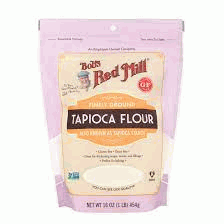
Tapioca starch is a binding or thickening agent for puddings, sauces, and condiments. For this purpose, you need to use one tablespoon of tapioca starch blended with three teaspoons of water which can be used in place of one egg.
It is further used to create vegan mayonnaise that is creamy and smooth. It is available in the baking ingredients section of most grocery stores.
9 – Chickpea Flour
Chickpea flour works as both a raising and a binding agent are high in protein and are one of the ideal vegan egg substitutes in baked goods such as cookies, scones, and biscotti.
Chickpea flour has a surprisingly similar flavor and texture to eggs and has become a common egg substitute in quiches and omelets. You can mix three tablespoons of water with three tablespoons of chickpea for each egg that is needed until it combines into a thick and creamy paste.
Chickpea flour can be found in most health stores and well-stocked grocery stores. To experiment with chickpea flour as an egg replacement, this recipe for orange hazelnut biscotti is an excellent – and delicious – place to start.
10 – Plant Based Yogurt (Unsweetened)
Using a vegan yogurt is a great egg substitute for load cakes or quick bread where a super moist baked good is most needed. Yogurt can also be easily subbed for yogurt if a recipe additionally calls for applesauce.
11 – Agar-Agar
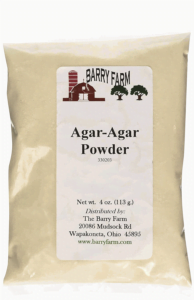
As we cannot use gelatin for vegan diets, it makes agar-agar—obtained from algae or seaweed —another viable replacement for eggs in recipes.
To create an egg equivalent, mix a tablespoon of agar-agar with a tablespoon of cold water. Then, mix two tablespoons of boiling water further and let them whisk until the mixture becomes frothy. After preparing, you can use it in baked goods or try agar-agar in this recipe for easy vegan mozzarella cheese.
12 – Aquafaba
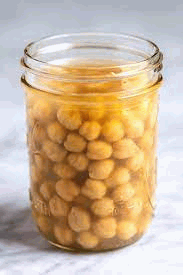
Aquafaba is the buzzword for chickpea cooking liquid—the same liquid found in chickpeas cans available in the market today. You can use the chickpeas for a hearty dinner tonight after draining those legumes for baking a batch of brownies.
While aquafaba may smell like beans or feel unappetizing, we can use it as a “magical” egg substitute for years. Take some sugar and add aquafaba to a stand mixer, and you’re on your way toward a vegan meringue.
It is a vegan egg substitute in baked goods, like quick bread and cakes, and makes a tremendous plant-based mayonnaise that adds flavor and moisture to chocolate cake.
13 – Starches
Starches like arrowroot powder, potato starch, cornstarch, tapioca starch, and agar, all combined with a bit of water until smooth and viscous, can serve as an egg substitute in enriched cakes and bread, plus a combination of a thickening agent in sauces and custards.
Moreover, you can experiment with various types of starch until you find the ones that substitute best in your recipes.
14 – Baking Powder + Vinegar
Combine baking powder and vinegar, and you have a lightning-rod leavening agent on your hands. While this mixture can make delicious muffins, cakes, and the like to reach their highest potential, it’s also more sensitive—and prone to error—than the ingredients listed above.
You can follow recipes with this substitute, but we wouldn’t recommend it as an ad hoc replacement unless the recipe has successfully been tested with vinegar and baking powder before.
Related FAQs
1 – What are vegan eggs?
The digital universe is likely awash with memes about vegans laying their eggs for breakfast. In reality, vegan eggs are an amalgamation of ingredients that mimic poultry eggs’ look and taste, binding abilities, or both. Modern substitutes use everything from soy milk to mung beans and black salt.
2 – How to make vegan eggs?
To be an ideal and proper substitute, vegan eggs need a base with the right seasonings and texture with the right flavor. We’ve listed above various brands that may have a wide selection of ingredients and advanced production methods to achieve this, but we’re a bit more limited when cooking at home.
Fortunately, many vegans have also tested out recipes and discovered the ingredients that are simple to find and effective at producing an egg-like texture and flavor.
3 – What do vegan eggs taste like?
It tastes like an egg, except it’s not from an animal we love, no chickens were harmed, etc. It’s a little pricey, but to be honest, we think it’s worth it if you’re looking for an egg substitute that will taste just like an egg.
4 – Do vegans live longer?
Vegans had a 15% lower risk of dying prematurely from all causes when separated from the rest, indicating that a vegan diet may help people live longer than those who adhere to vegetarian or omnivorous eating patterns.
5 – Are vegans the healthiest?
As a plant-based eater, if you stick to a diet of whole foods, the latest studies reveal that a plant-based and whole-food diet lowers your risk of heart disease, type 2 diabetes, high blood pressure, obesity, and breast cancer.
6 – What happens when you bury an egg in soil?
To prepare your pots with soil, simply include a raw egg at the bottom. Over time the egg will decompose and work as a natural fertilizer for the seedlings. You can also go for a crushed egg which works just as well as a whole egg.
7 – What cheeses are plant-based?
Vegans can eat cheese composed of plant-based ingredients like soybeans, peas, cashews, coconut, or almonds. The most common vegan cheeses are cheddar, gouda, parmesan, mozzarella, and cream cheese, which are found in non-dairy forms.
Final Words
The sustainability of eggs is an exciting topic, as it brings us directly to factory farming and the emissions, energy use, and waste created by the entire industry.
Comparably, vegan substitutes for eggs do appear to rely on less impactful production methods, even when considering crop developments (soy is commonly used). This is something that the major players in the market appear to take particular pride in, with many highlighting low water requirements and significantly smaller carbon footprints than animal counterparts.

